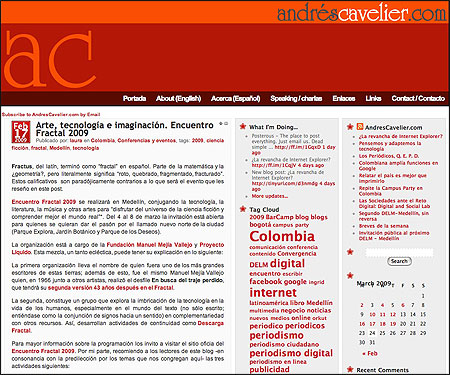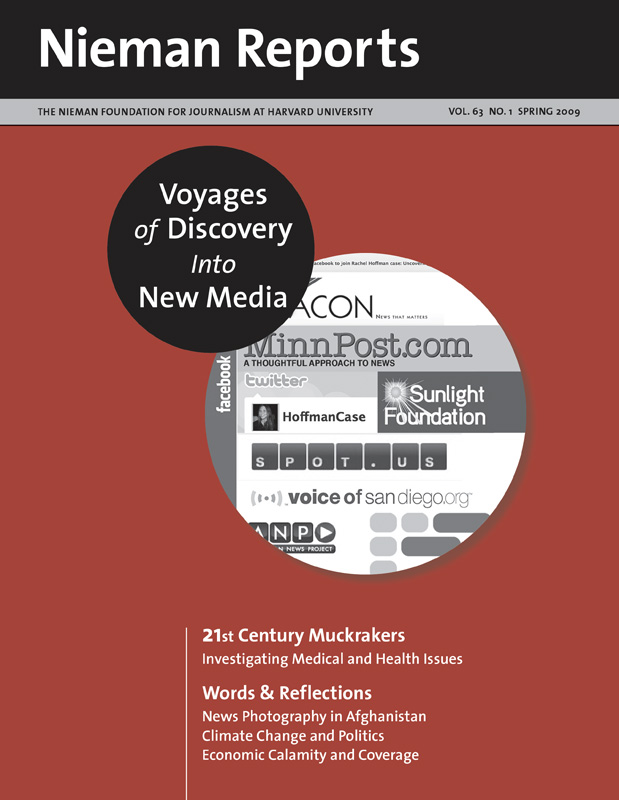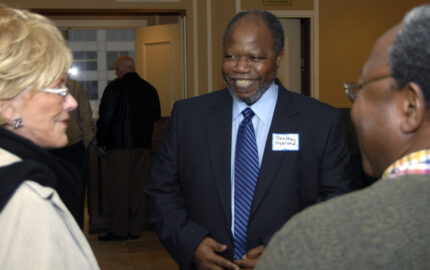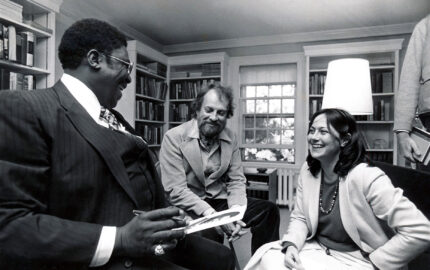
After spending a superb year as a 2008 Nieman Fellow, a time I will also remember for the collapse of the traditional U.S. news media model, I reached a major conclusion: The crisis facing American journalism is a deep one that calls for a radical response by each of us in the industry. A timid reaction assumes forgoing the opportunity to innovate at this exciting juncture of history.
That’s why, after departing Cambridge in June 2008, I quickly took a voluntary buyout package from The Miami Herald and El Nuevo Herald, the newspapers where I had worked since 2001. I could have gone back to a comfortable desk on the Herald’s fifth floor, overlooking the stunning Biscayne Bay, but that option no longer felt right. In the end, I chose risk over safety. Or, better put, safety in the long run over risk in the short term.
Single at 40, with no family to feed and luckily a couple of pennies in the bank, I concluded that the time had come to assemble my own new media start-up by blending my expertise in online journalism with the experience and contacts resulting from 18 fascinating years in print, television and digital journalism in the United States, my native Colombia, and Latin America.
I have lived roughly half of my life in Colombia and the other half in the States, which, as best as I understand it, makes me a bicultural guy, with its pros and cons. I love both places and, thanks to airplanes, Twitter and the BlackBerry, I feel I can now play as a local in both places. The challenge is to make a decent living while enjoying myself, helping shape the future of digital journalism, and linking good ideas across boundaries.
Upon leaving the Herald last summer I relocated to Washington, D.C., seeking a national and international platform and, admittedly, the familiarity of a city that had grown on me when I lived there as correspondent for El Tiempo newspaper and RCN Television in the late 1990’s. I first made a cushy landing on my brother’s basement next to American University—oh, did I say gracias brother? As fall 2008 kicked in, I spent a considerable amount of time in a makeshift office at the National Press Club, in downtown Washington, drafting a plan and consulting about my next move with colleagues, friends and confidants.
During this time, I became absorbed in the use of social media tools to press forward with my plans. I spent odd hours posting on my new media blog at AndresCavelier.com, following dozens of media sites like BuzzMachine and PressThink via RSS; checking and updating my Twitter, Facebook, del.i.cious and FriendFeed accounts, and BlackBerrying friends and contacts.
As a result of this process, I settled on starting a top-notch new media consulting firm to help U.S. Hispanic and Latin American media companies and institutions succeed in their Web and mobile businesses. I hope to capitalize on some of the lessons learned as chief content officer for GDA.com, a now-defunct start-up put together in 2000 by the top Latin American newspapers, and as multimedia manager for El Nuevo Herald, the leading Spanish daily newspaper in the United States.
Taking the Next Step
Called FastrackMedia, a name a friend suggested in an informal brainstorming session, my agency specializes in content and business strategies for the Web, social networking, online marketing, and multimedia training. Early clients include Terra.com, a Spanish news and entertainment site, and Gato Communications, a Virginia-based strategic communications firm.
My vision is to grow the firm over time by bringing in key partners and excelling in a niche. In the long run, I want to hire a small and nimble team of experts to work in-house. In the meantime, I have invited a handful of accomplished media executives, journalists, Web developers, and young techies from different countries to engage as advisors and consultants—a structure that should allow FastrackMedia to quickly assemble professional teams to serve our clients.
I am well aware I am taking an unpaved road filled with land mines. More than one colleague has warned me about the dangers of becoming an entrepreneur and starting such a business in these troubled times. Confronting trouble, staying focused, managing time effectively, working within budget, making swift decisions, and keeping positive are some of the dilemmas I regularly face. Some hurdles can be anticipated and dealt with, but others come flying at my face. In October 2008, when the U.S. stock market plunged, I became concerned about the timing of my enterprise. Should I abandon ship and look for a job? I quickly concluded that I should carry on at full speed in starting up FastrackMedia, based on all the exciting opportunities for growth in the digital sphere.
Looking Ahead
When I look at the future, I see great potential for companies entering the Latin American market. In 2008, less than one quarter of Latin Americans used the Internet, a penetration that compares poorly to the 72.5 percent in the United States, reports Internetworldstats.com. The number of users in the region is expected to grow exponentially in the next decade given the availability of cheap personal computers, the expansion of broadband connectivity, and the eagerness among the young to socialize and get their news and entertainment via the Web and mobile phones. Most of the users are in Brazil, Mexico, Argentina, Colombia, Peru and Chile.
Colombia is a good case study of the communication changes taking place in the region. While most of the 45 million Colombians rely heavily on television and radio for their news and entertainment, Internetworldstats.com reports Internet usage in that country grew at a rate of almost 1,500 percent between 2000 and 2008, when it reached nearly 14 million users. Out of these, 4.1 million are on Facebook, the second highest figure in Latin America after Chile, according to the AllFacebook.com.
These data signal the transformation that companies, governments, institutions and media organizations in Latin America are up against. Some of them are gearing up for change; others are blindly relying on the old ways of doing business. I’m convinced that those profitable newspapers in the region that do not plan and execute now a sharp digital strategy will be bankrupt in five years. Emerging local and foreign “Googles” will eat them alive. I hope my start-up will help these media companies shape their response, as well as assist new players to enter the market successfully.
Andrés Cavelier, a 2008 Nieman Fellow, is principal at FastrackMedia.



